In the daytime the Boulevard Clichy looked dowdy, like the decorations after a carnival. Tall, ugly old houses were all occupied by restaurants, bars, cafes, overnight hotels and little shops selling tawdry rubbish. The frames and tin-plate structures of the advertisements, the bedraggled sails of the famous Moulin-Rouge, the cinema posters on the pavements, the two rows of anaemic trees in the middle of the boulevard, the pissoirs covered with unprintable scribble, the stone-paved roadway over which the centuries had rolled noisily by, the rows of stalls and roundabouts in their canvas coverings—all this awaited the night when the idlers and merrymakers would come up from the bourgeois quarters of Paris.
And when night comes the lights flash on, the garcons flit busily to and fro, the roundabouts turn to the screaming music of the steam organs; on golden pigs, on bulls with golden horns, in boats, saucepans and pots, reflected in a thousand mirrors, girls with skirts above their knees, bourgeois with astonishment written on their faces, thieves with magnificent moustaches, Japanese students with smiling mask-like faces, gamins, homosexuals and morose Russian emigres awaiting the downfall of the Bolsheviks—all race round and round and round.
The fiery sails of the Moulin-Rouge begin to turn. Broken fiery arrows dart across the facades of the buildings. The names of world-famous night bars flash out in letters of fire, the raucous trumpeting and wild drumming of jazz bands stream through the open windows on to the hot boulevard.
The crowd is noisy with its cardboard whistles and wooden rattles. The underground railways disgorge more crowds of people on to the boulevards. This is Montmartre, the Hill of Martre, its night lights gleaming high above the city of Paris—the most care-free spot in the world. Here there are places to leave your money and plenty of opportunities to spend a merry night with a laughing girl.
Merry Montmartre—the Boulevard Clichy between the two round Places, the Place Pigalle and the Place Blanche, two centres of ultimate pleasure. To the left of the Place Pigalle stretches the wide, quiet Boulevard Batignolles. To the right, beyond the Place Blanche, begins the Faubourg Saint-Antoine, the quarter of the Parisian poor and the working class. From here, from the Boulevard Batignolles, from the heights of Montmartre and Saint-Antoine, armed workers have descended on many occasions to seize Paris. On four occasions they were driven back to their heights by cannon fire. And the lower city, spread along both banks of the Seine, the banks, offices, luxurious shops, hotels for millionaires and barracks for the thirty thousand police, on four occasions launched a counter-offensive and the blazing lights of world-notorious dens of infamy branded the very heart of the workers' city—Place Pigalle, Boulevard Clichy, Place Blanche—with the sexual seal of the lower city.
When the man in the loose overcoat reached the middle of the boulevard he turned into a narrow side street whose worn steps led to the summit of Montmartre; glancing carefully round he entered a dark bar whose habituÉs were prostitutes, taxi-drivers, half-starved writers of couplets and would-be artists who from force of habit still wore baggy trousers and wide-brimmed hats.
He asked for a glass of porto and a newspaper and settled down to read it. The red-faced, moustached, seventeen-stone Frenchman who owned the bar, his shirtsleeves rolled up above the elbows of his hairy arms, was washing glasses under a tap behind his zinc-covered counter and talking—listen if you like, if not, don't.
"Say what you like, Russia's given us plenty of trouble (he knew that his visitor was a Russian, Monsieur Pierre). Russian emigres don't bring an income any more. Played out, oh, la-la... But we're still rich enough to be able to afford the luxury of harbouring a few thousand unfortunates. (He was sure that his visitor was a Montmartre street trader.) There must be an end to everything, of course. The emigres must go home. Helas! We'll reconcile you with your big country, we'll recognize the Soviets and Paris will be good old Paris again. I'm fed up with war, I can tell you. Ten years of that indigestion. The Soviets agree to pay small holders of Russian stock. Clever, very clever on their part. Vive les Soviets! Their politics aren't at all bad. They're Bolshevizing Germany. Excellent! I applaud! Germany will become Soviet and will disarm herself. We shan't get belly-aches any more at the thought of her chemical industry. The idiots in this district call me a Bolshevik. Oh, la-la... I've thought it all out. We've got nothing to fear from Bolshevization. Just count up how many good bourgeois there are in Paris and how many workers. Oho! We, the bourgeois, we can look after our savings... I'm quite calm when our workers shout 'Vive Lenine!' and wave red flags. The worker is a barrel of fermenting wine, you mustn't keep him sealed up. Let him shout, ''Vive les Soviets!' I shouted it myself last week. I have Russian bonds for eight thousand francs. No, you have to come to terms with your government. Enough nonsense. The franc's falling. The damned speculators, the parasites that feed on every nation whenever currency begins to fall, that whole tribe of inflators has again moved back from Germany to Paris."
A thin man with an uncovered head of fair hair, dressed in a sail-cloth smock, came hurriedly into the bar.
"Good evening, Garin," he said to the man reading the newspaper. "You may congratulate me on my success."
Garin jumped up and squeezed his hand.
"Victor..."
"Yes, yes. I'm awfully glad. I insist that we take out a patent."
"Under no circumstances. Let's go."
They left the bar, climbed up the steps, turned to the right, and continued their way for a long time between the dirty houses of the Faubourg, past empty lots fenced off with barbed wire where shabby linen hung on lines, past tiny factories and workshops.
The day was drawing to a close. On their way they met groups of tired workers. It seemed that a different race of people lived up here on the hill, they had different faces—firm-set, gaunt, and strong. It seemed as though the French nation had climbed to the heights above Paris to save itself from degeneration and was here calmly and grimly awaiting the hour when it would be possible to clean out the lower city and turn the golden ship of Lutece into the ocean of sunshine.
"This way," said Victor, opening the door of a low brick shed with a Yale key.
Garin and Victor Lenoir went to a small brick furnace under a cowl. The little pyramids stood in rows on a near-by table and on the furnace there was a bronze ring with twelve porcelain cups arranged around its circumference. Lenoir lit a candle and looked at Garin with a strange smile.
"Pyotr Petrovich, we've known each other for about fifteen years, haven't we? Surely that's long enough for you to know whether I'm honest or not. When I fled from Soviet Russia you helped me. From that I gather that you don't think badly of me, so tell me straight out—why the hell are you keeping your apparatus hidden from me? I know that without me, without those pyramids, you're helpless. Let's act like friends."
Garin kept his eyes fixed on the bronze ring and the porcelain cups.
"You want me to disclose my secret?" he asked.
"Yes."
"You want to participate in my business?"
"Yes."
"If necessary, and I think it will be necessary in the future, you must be prepared to go to any lengths for success."
Keeping his eyes on Garin, Lenoir sat on the edge of the furnace, the corners of his mouth trembling.
"Yes," he said firmly, "I agree."
He pulled a rag out of his smock pocket and wiped his forehead.
"I'm not trying to force your hand, Pyotr Petrovich. I started this conversation because you're the closest friend I have, strange as it may seem... I was a first-year student when you were in your second year. Ever since then I've, well, how should I put it... I've sort of worshipped you. . . . You're terribly gifted... brilliant. And you're terribly bold. Your mind is analytical, daring, terrible. You're a terrible man. You're hard, Pyotr Petrovich, and like every man of great talent you're no judge of people. You asked me whether I was prepared to go to any length to work with you... Of course I am. Of course. How can you doubt it? I've nothing to lose. Without you there is nothing for me but humdrum work to the very end of my life. With you it's either a merry life or death... Do I agree to everything, you ask? . . . You're funny. What does that everything mean? Steal? Kill?"
Читать дальше
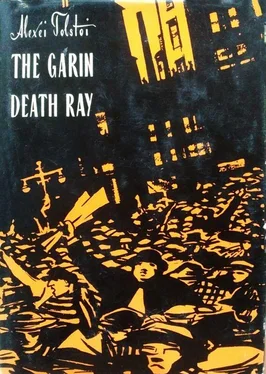
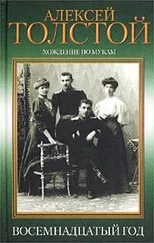

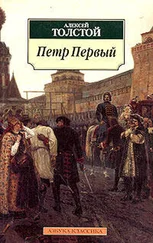
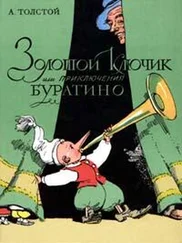
![Алексей Николаевич Толстой - Хождение по мукам [litres]](/books/26263/aleksej-nikolaevich-tolstoj-hozhdenie-po-mukam-litr-thumb.webp)
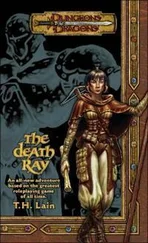

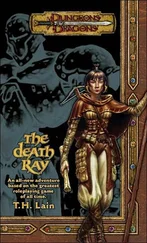


![Алексей Николаевич Толстой - Гиперболоид инженера Гарина. Аэлита [Художник Г. Зубковский]](/books/423486/aleksej-nikolaevich-tolstoj-giperboloid-inzhenera-ga-thumb.webp)
